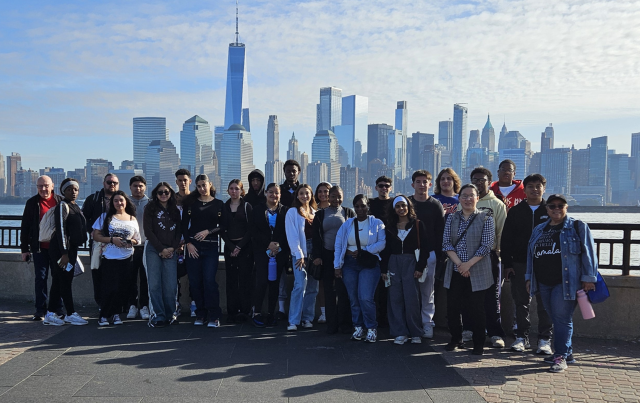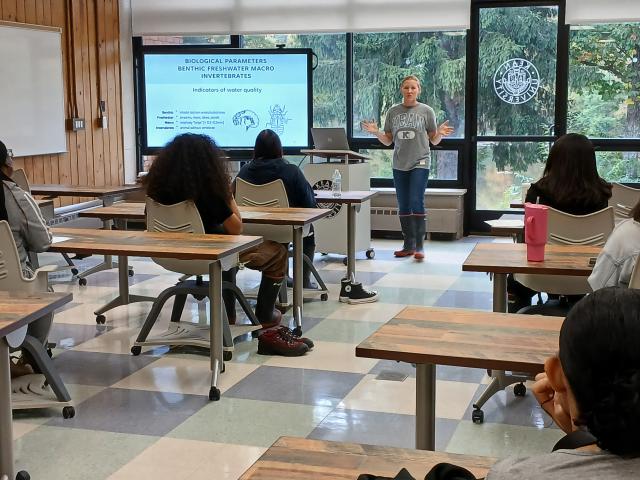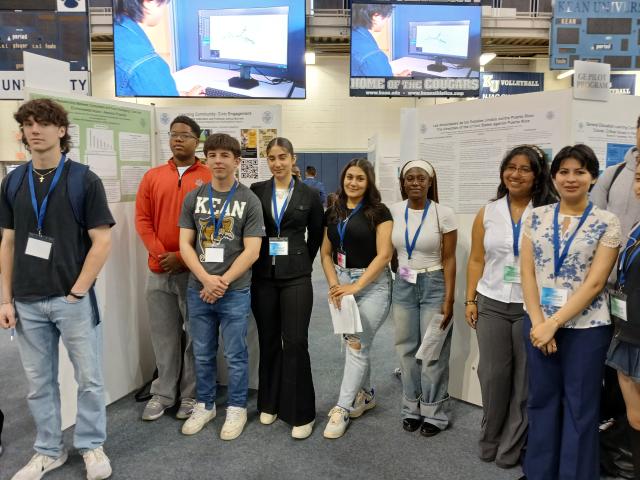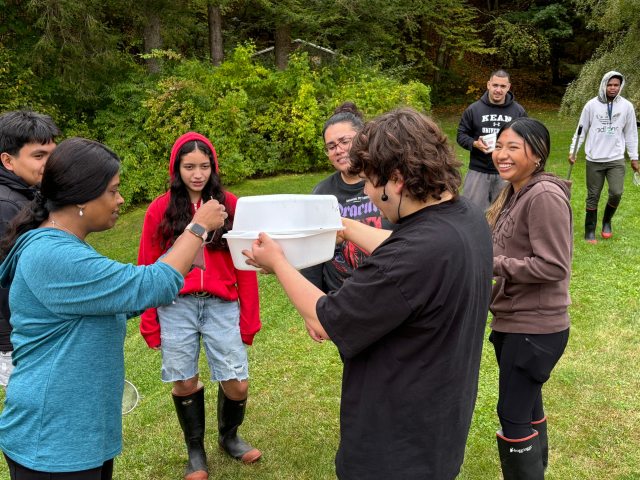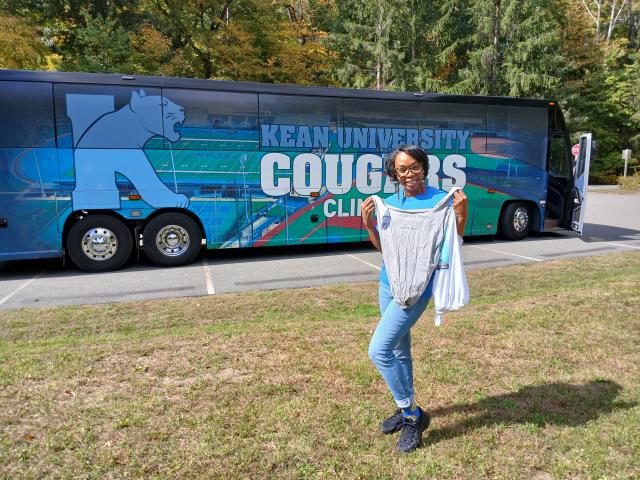GE Learning Communities
Fall 2025 General Education Learning Communities:
Who
Half of the new, incoming freshmen class is enrolled in GE Learning Communities in Fall 2025; Faculty representing nearly all Colleges are teaching foundational, 1000-level General Education courses in the Fall 2025 Learning Communities.
What
Students take two, theme-based GE classes together in their first semester. The courses are taught by two different instructors who co-plan the syllabi and experiential learning activities around the same theme.
- Themes for GE Learning Communities in Fall 2025 – Migration, Civic Engagement, Sustainability, Wellness, Urban Education
Where
- Planned excursions include: trips to Skylands campus, Liberty Island State Park, Newark Art Museum
- Planned out-of-the classroom experiences include: Common Read author events; activities at the LHAC archives (SCRLA), Cougar Pantry, HRI, Kean Galleries
Why
Learning Communities are a High Impact Practices (HIP). Research has shown that students engaged in HIPs as undergraduates are more likely to develop essential skills and engage more deeply in coursework, be retained, and have a greater sense of belonging.
Are there faculty I can contact with additional questions?
Dr. Ojeh (CLA), Dr. Namazi (HPHS), Dr. Woodruff (COE), and Prof. Hart (CLA) taught in the Learning Communities last year and will also be doing so this fall.
Student Feedback
Familiarity and Comfort:
-
Students feel comfortable with their classmates and professors due to consistent interactions across multiple classes.
-
Familiarity fosters a supportive and collaborative environment, making it easier to ask for help and participate.
Social Connections:
-
Being part of the same group helps students make friends and develop stronger social ties, which aids in building a sense of community.
Collaborative Learning:
-
Close collaboration among professors ensures alignment across courses, creating a cohesive learning experience.
-
Students benefit from consistent themes and integrated assignments across the cohort.
Increased Engagement:
-
Smaller group settings and familiar faces encourage active participation and more meaningful discussions.
Resource Access:
-
Embedded tutors and professor collaboration provide additional academic support and guidance.
Ease of Transition:
-
Learning communities make the transition from high school to college smoother, providing a strong support network.
Student comments:
“Professors seem to know you a bit better and it makes you feel safe when asking for help.”
“Some pros i would say is having resources and familiar faces to go to and get much more helpful feedback in a learning community.”
“a strong support network, deeper engagement with course material, increased academic success, and stronger social connections”
“being in a learning community allows people to be more social with each other since were working in groups, with also having discussion allowing me to hear everyones opinions and views.”
“This program makes the transition from high school to Kean less abrupt.”
“I think it’s very easy to be comfortable to express yourself considering how often you see everyone. It builds a sense of community and I really enjoyed it :) There was nothing about this experience I didn’t like.”
“we are all learning together to become successful academically”
“I really like working with the same people and my professors are amazing.”
“Everyone is friends with each other, our teachers are kind and having lessons in small classes makes it easier for me to learn.”
“Having a steady theme in my classes makes them more interesting and easy to interact with the lesson.”
“I think the learning community helps students build connections with other students”
“since you are in classes with the same group of people, its easier to make friends and get to know people and adapt quicker. Another is that our professors keep close communication for our purpose.”
“in a learning community [are that] I can form bonds and connections with my classmates and professors”
